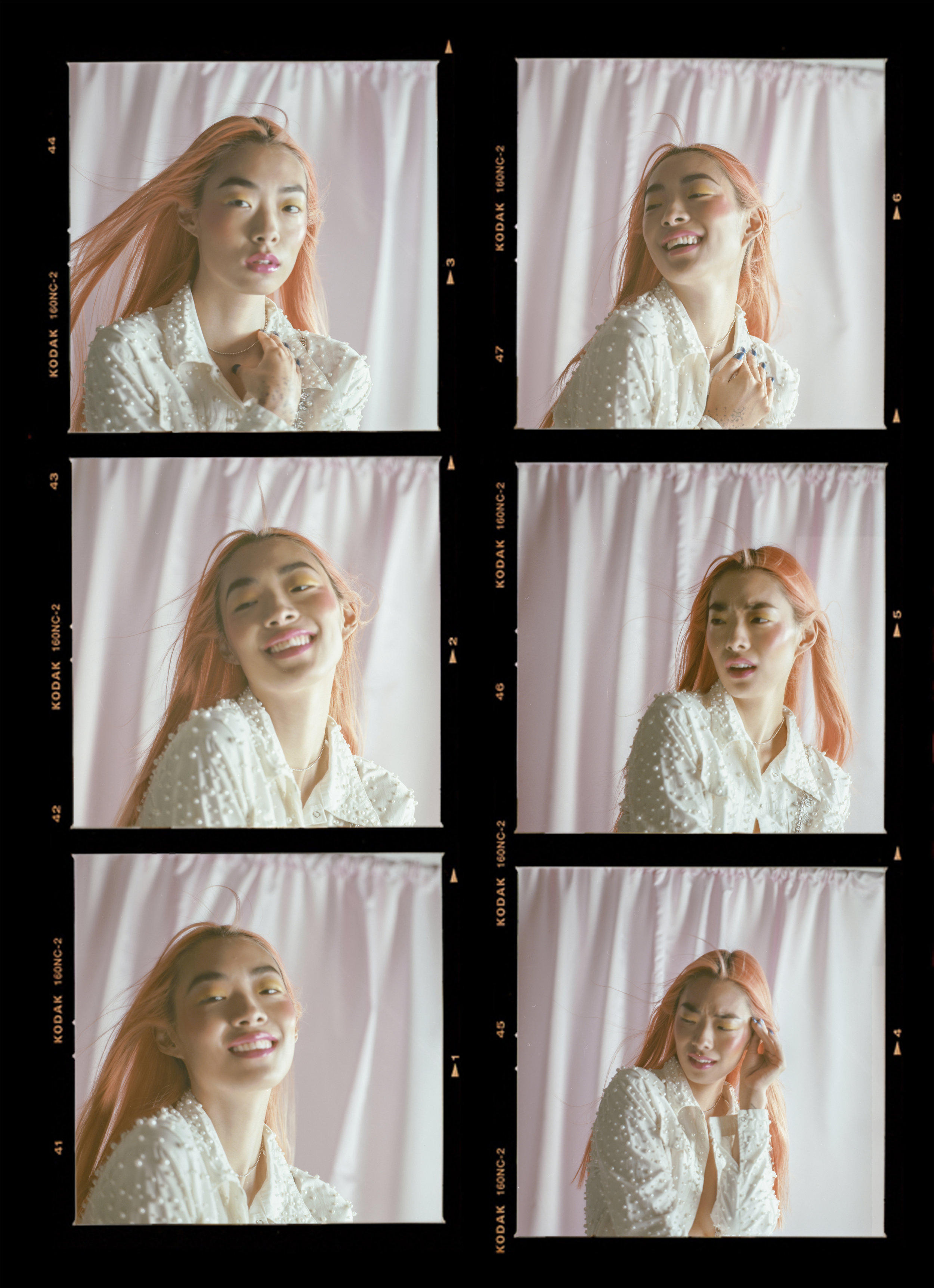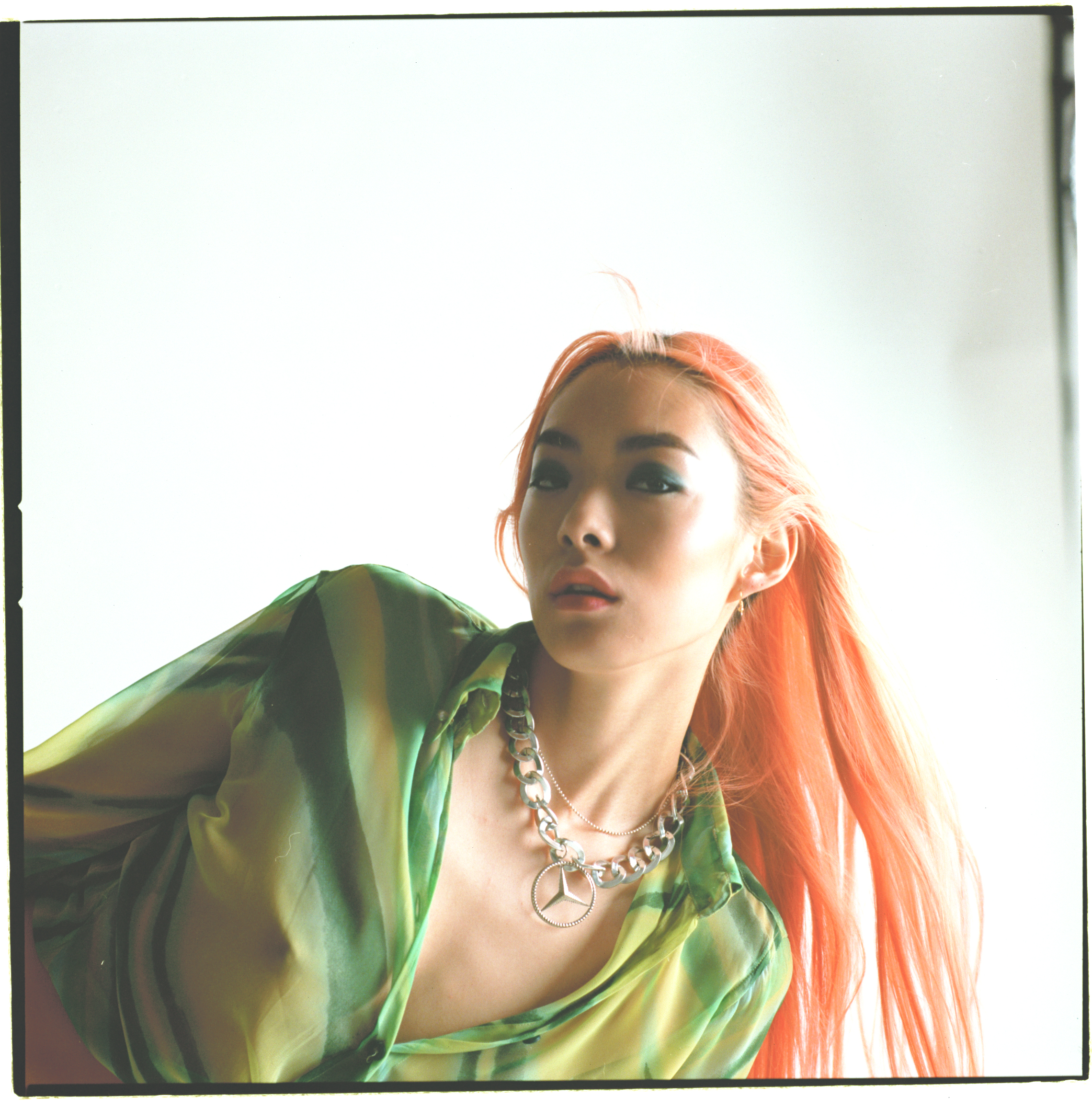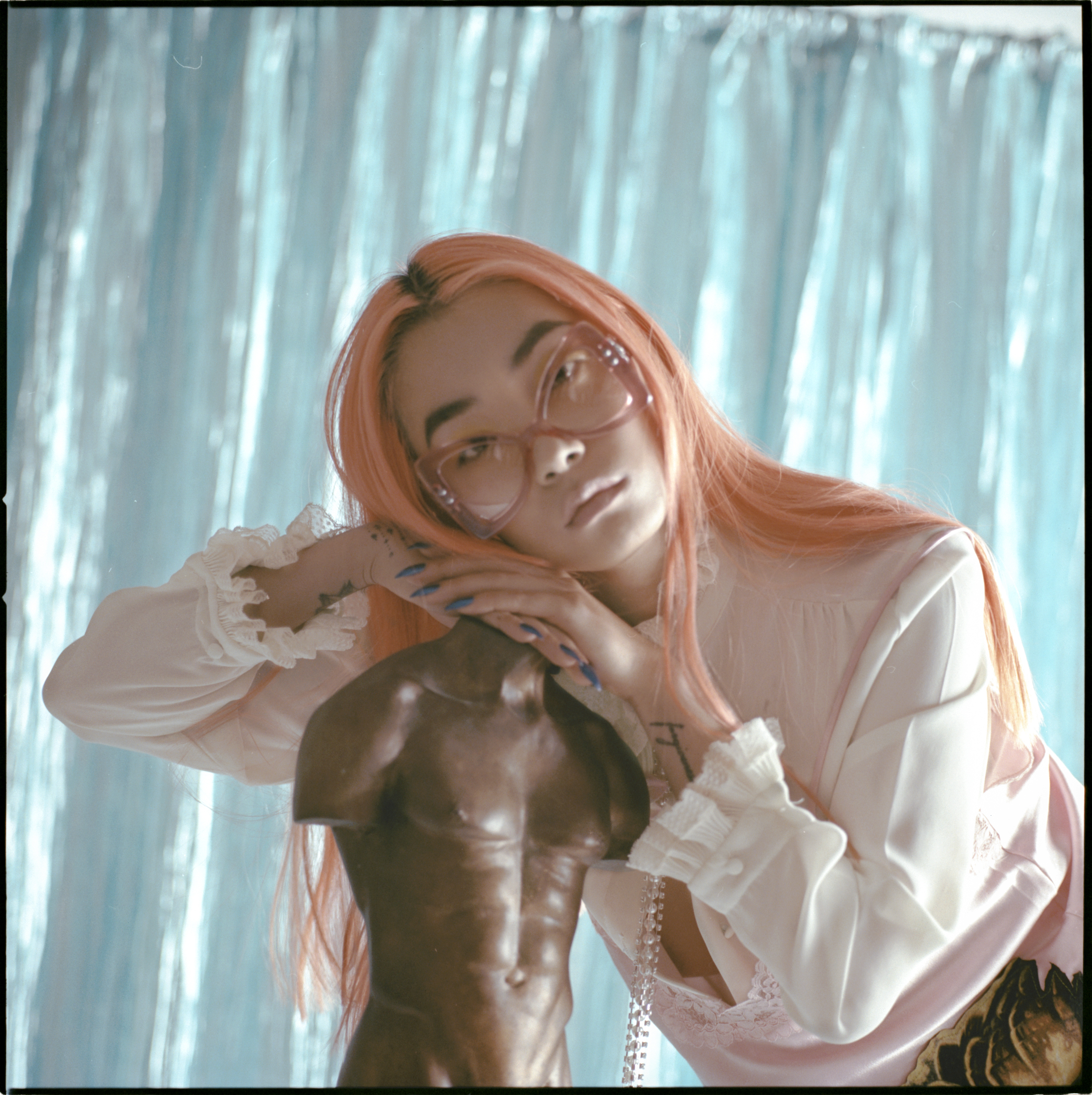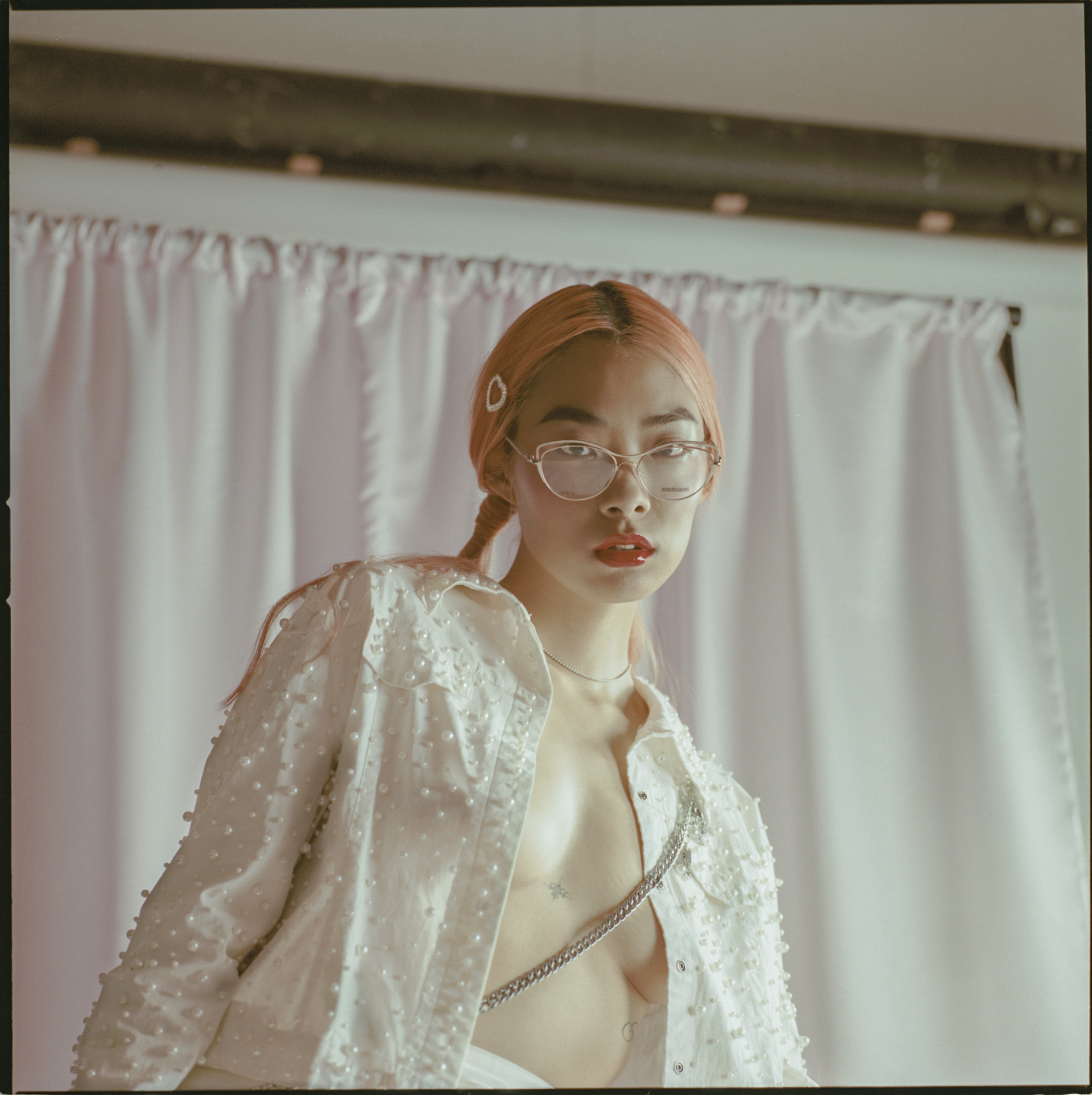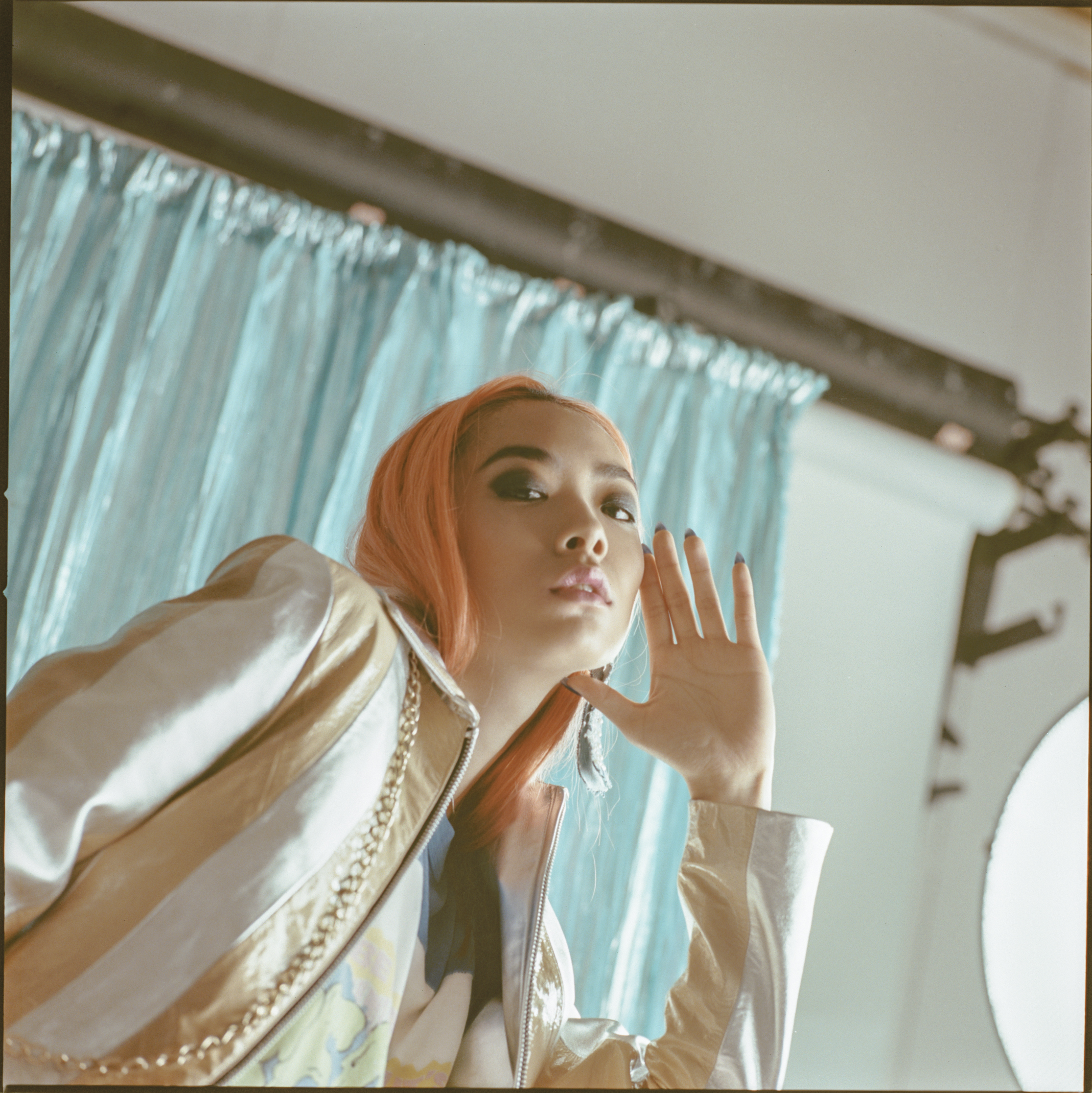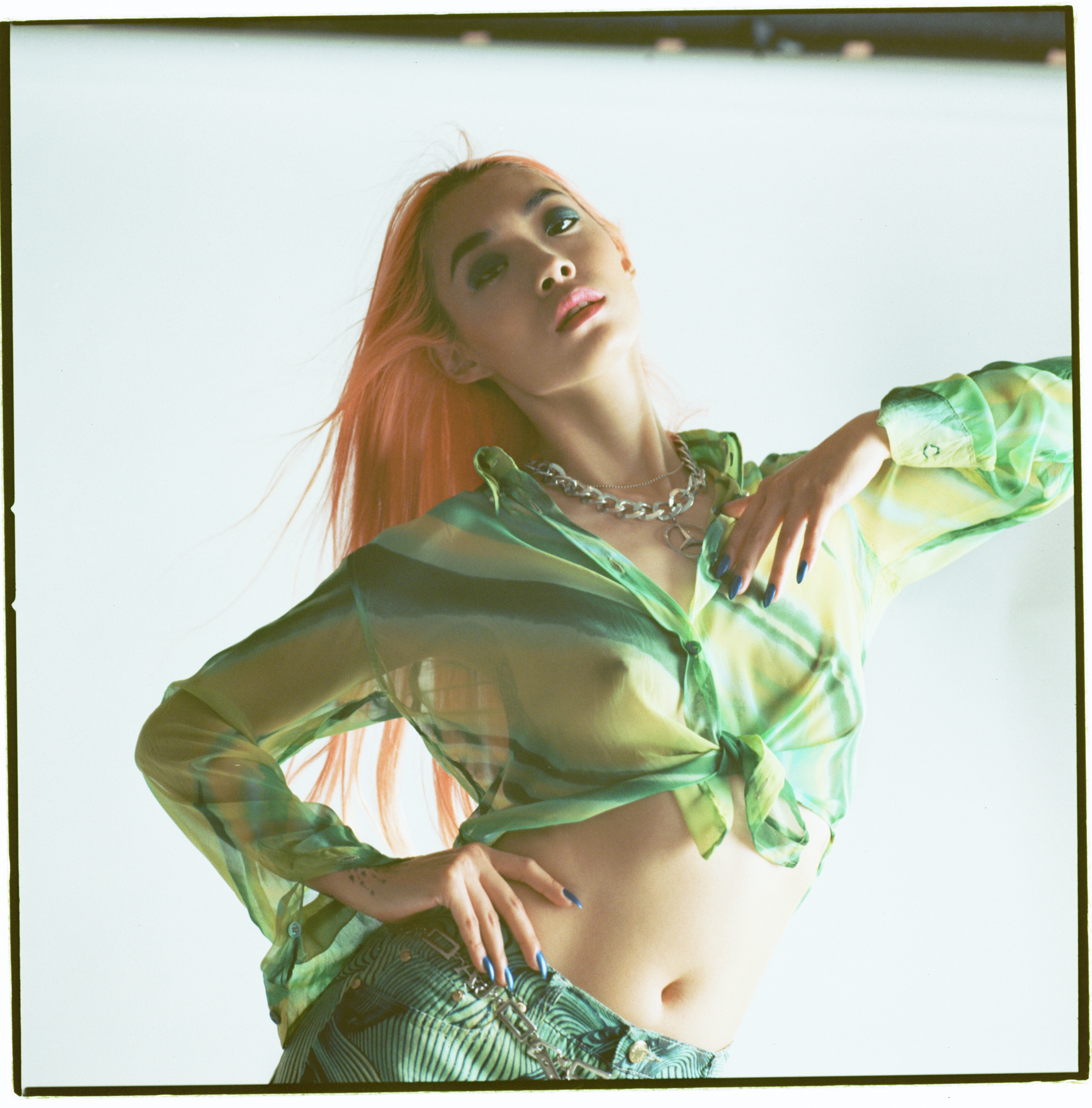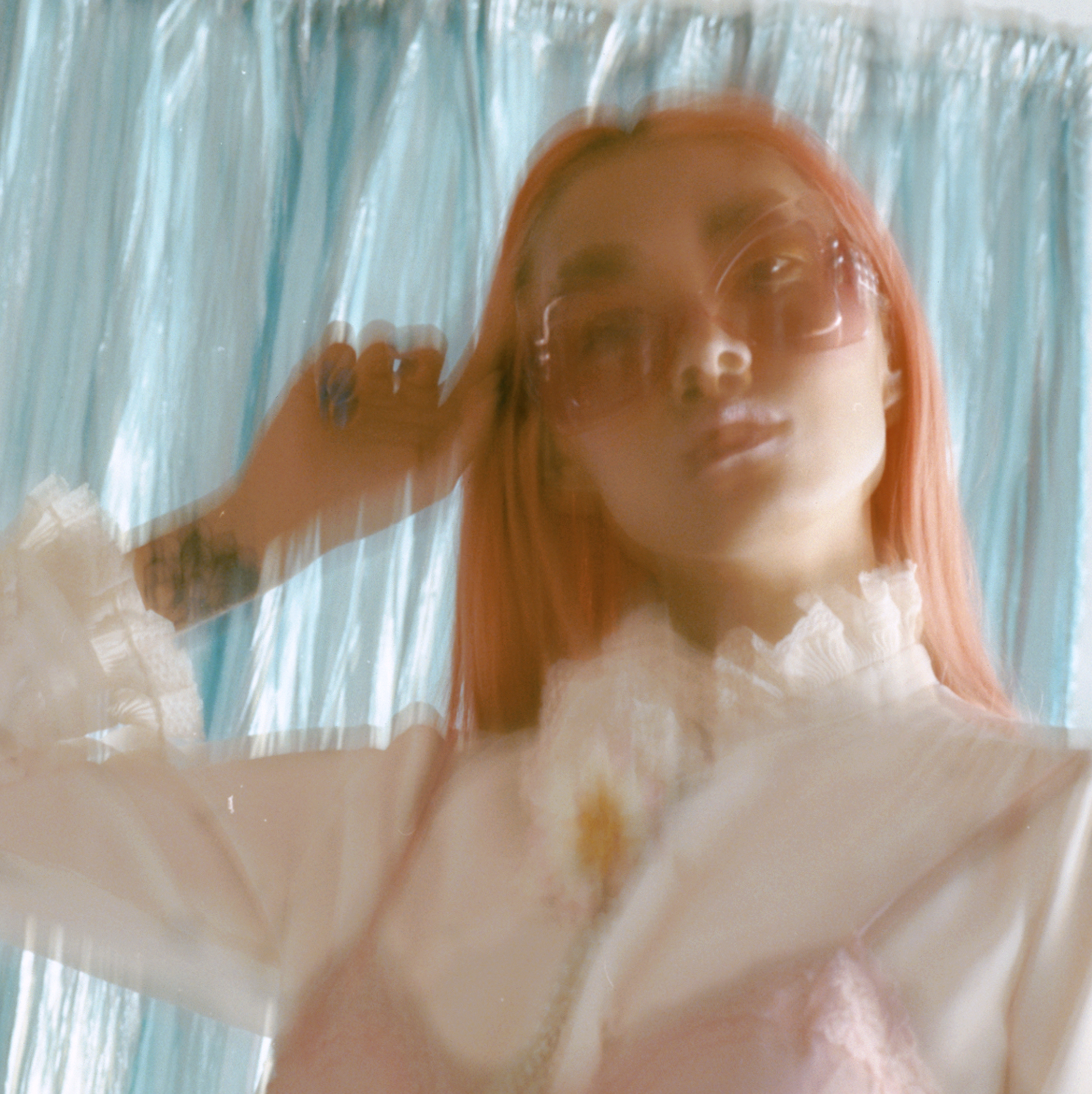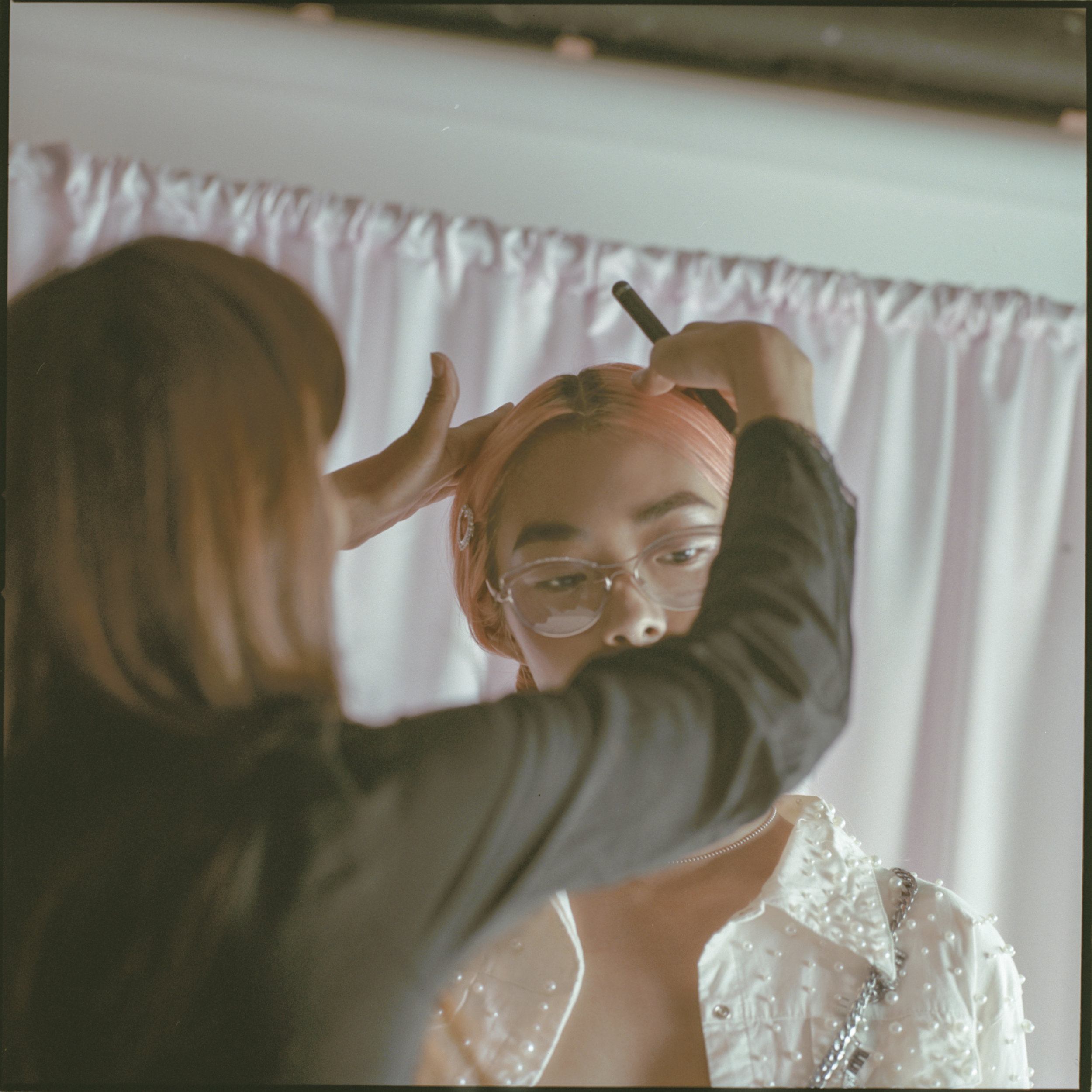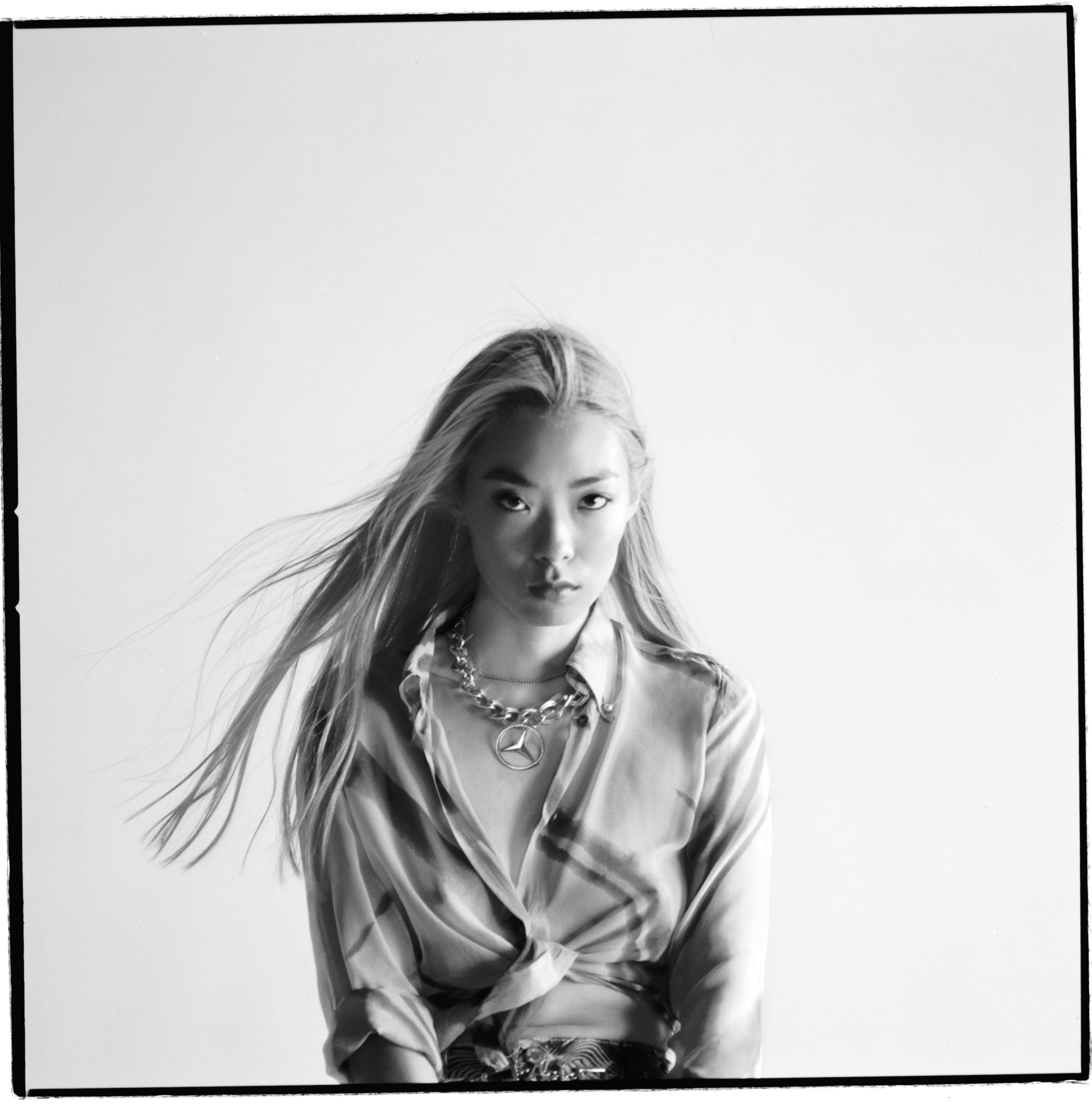The Girl You Want to Watch, Rina Sawayama
Photography by Isaac Kariuki
Photography & Interview: Isaac Kariuki
Creative Direction & Production: Hannah Black
Makeup: Famida Pathan
Set Design: Katherine Burke
Styling: Yuki Haze
Nails: Chi Chi
Typically tranquil and composed, the Hackney Pearl cafe in East London is pounding with construction noise, barking dogs and numerous calamities for one late June morning with Rina Sawayama. The opening verse to this chorus was my voice recorder malfunctioning the night before and Rina offering her phone as an alternative. "Do you want me to do it just in case?," the Japanese singer asked while remaining calm in the situation, as if already a couple steps ahead.
Refining this cool for the last couple years Sawayama, now 26-year-old, is one of the most promising indie R&B artists coming out of the U.K, alongside Mabel, Raye and Jorja Smith. What distinguishes Sawayama is her experimentation: the glistening retro production coupled with her startlingly raw and flexibly alto voice, together interact in her ecosystem of lyrics covered in love, personal fulfillment and anxiety in the digital age.
But right now, she could not be more at ease, cracking wise at a passing semi-truck: "It's so rough … okay there we go." Her presence - cloaked in white draping sportswear, her hair a dramatic burnt orange, her face close-up dewy and blemish free - supports her serene yet experimental nature.
"I think I've been quite analytical of how I feel in public and how I feel in social situations," she tells me as a Jack Russell leaves its owner at another table to sniff her out. It becomes apparent that she's attracted attention in the cafe. "I always turn to my phone, and I think a lot of people do. How does that make you feel and what does that do to you? Is it escapism or [is] it home?"
Born in Japan, where the birthrate is relatively low - solitude was a habitual and gratifying state for her. "I think one thing that is quite common with only children is that they love being alone," she says. "I love it. I need it to recharge myself. My mom said because, 'You're such an only child, you eat so slow.' That's an only child thing because no one's rushing you."
It's with this only-child momentum that Sawayama managed to create a sparse and compelling discography in three short years. Starting singing after moving to the U.K with her mother, Sawayama released a trilogy of singles exploring isolation in all its arrangements. 'Tunnel Vision' is bruised like a peach, a carrousel ride of a Toni Braxton hymn confined in the struggle of IRL and URL desires. "I know you're sad and lonely / But I got one hundred tabs open," she moans.
The music video has Sawayama compulsively checking her phone in between clusters of depression naps. It was shot by Swedish artist Arvida Byström, a close friend and personal hero of Sawayama. The two met on a photo shoot (they both successfully venture in modelling on the side). Byström's work often examines cultural perceptions of femininity and online visibility, so it's no surprise the two instantly clicked. "She's very, very passionate but also non-judgmental," Sawayama tells me about Byström. "I always message her if I have any sort of feminist question. She's like the oracle."
Over emails, Byström described her relationship with Sawayama. "She is super bright and always fun to discuss anything from creative stuff to politics and is the kind of person that you want to have a cute sleepover with." And with that in mind, the video for 'Tunnel Vision' was conceptualised with a makeshift bed in Byström's flat that also served as her studio. "We had been hanging out quite some time talking a lot about the Internet and our twofold relationship with it," Byström said. "She is the kind of person that is extremely kindhearted, interested and just give[s] out very sweet and understanding vibes. I don't know - I just love Rina!"
The second single 'Where U Are' released in 2016 has Sawayama leaping off that bed and into a coordinated introspective concert in a guitar driven rework of the Michael Jackson single 'I Wanna Be Where You Are'. In its original package, the T-Boy Ross written single has Jackson wailing for a relationship that might never happen. To Sawayama, the relationship is more Man In The Mirror: "I was spending so much time looking and trying to be this person that I wanted to be and I was feeling so much anxiety," she explains. "The gap was like why the hell was I not there yet? And that was a spiral of anxiety. Where I am right now and then where you are - as in future me - and were I could be. I think a lot of us look at people on Instagram and think, ‘Oh my god. How do they get there?’ They seem so far away. But if you scroll down my Instagram, I've deleted a lot of things."
Sawayama has over twenty-seven thousand followers on Instagram largely aggregated from her music and modeling career but also her deeply honest presence. "I sometimes get comments like, 'I want to look like you,'" she says, now playing with the friendly pooch. "And I know that when I was younger, I thought that about people who were in the public sphere. But that's not what I want to inspire in people. I really want to connect - especially with Asian people living in the west. Even though there can be people who are talking about things, who are in the public sphere, I find that it's so much more effective when they look like you."
One of Sawayama's most active posts is a photo she took of a casting sheet that was taped to the wall in a studio where Sawayama was modeling for a global campaign. The sheet, with the header 'Asian Additions', had below images of Sawayama and Singaporean model Meghna Lall (misspelled as Meghana Lall). Sawayama told her followers, "I felt like I was there just ticking a diversity box, and that I wasn't as worthy as the other models. Their ethnicities weren't noted on the same sheet. I know this sort of conversation goes on behind closed doors but to publicly display this was devastating."
Only in recent memory has representation and misrepresentation of East Asian women seeped into mainstream conversations. Sawayama recalls one of the most controversial and complex moments of this; Ariana Miyamoto, the half Japanese and African-American model who was crowned Miss Universe Japan in 2015 and recipient of overwhelming antiblack and colourist backlash because of her win.
"In Asia, the identity is so strong about being Asian," Sawayama explains. "But I grew up reading Japanese magazines that did favour mixed-race girls, but it's complicated because mixed-race girls in Japan (think about mixed-race white and mixed-race Black) get bullied and tormented for not being Asian enough. There's this complete separation of celebrities, a lot of them being mixed-race, and the beauty standard of it being informed by mixed-race models."
In several ways, this contradiction is informed by Western beauty standards, however Sawayama rejects confining her criticism in this way. "I can say all these things about western beauty standards and Japanese beauty standards, and critique it from this western angle, but is that fair? Is that actually in itself a sort of racially insensitive thing to do - to just paint Japan with this brush of judging them from the western? If women, are struggling with themselves because of this beauty standard, if there's a struggle there, then it needs to be addressed and it's very difficult."
At this point, it's important to note that Sawayama is not apprehensive when answering complicated questions. Only pausing briefly - 0.5 seconds - before imparting her thoughts in exceeding politeness.
Sawayama tells me she thinks about these things, the emotional and psychological burden East Asian women face, constantly. From a young age, she was acutely aware of her depression. "I was 13-years-old, I think because my parents separated. My mom was a single mom in the grunt. She didn't really speak good English, didn't have any time to help me out with homework. You know, like little things. I didn't really get diagnosed until I was 17-years-old. But it kind of manifested in different ways. I was self-harming, had eating disorder, and then I got full blown depression when I was 19-years-old."
After seeking proper treatment that got her in a better place, Sawayama enrolled in Cambridge University studying politics, psychology and sociology. "I felt tricked!," she says. "They invited me to an open day [where] they just showed you all the ethnic people in uni. But then when I got in I was like, 'shit there's literally only white people here.'"
On the final single from the trilogy 'Cyber Stockholm Syndrome,' Sawayama unveils her arsenal of life experiences. The title, brazenly references her obsession with the relationship between technology and the human mind. The opening line (girl in the corner / stirring her soda) imparts not just her collegiate circumstances but saluting the East Asian women across the world in her position. Sonically, the single pulls in the ‘90s Japanese music she grew up listening to like Utada Kikaru and Crystal Kay; the chorus explodes into a saccharine melodic-trampoline ride with the memorable line 'Came here on my own/party on my phone' for the loners on the dance floor.
"You've got to be honest," Sawayama says, leaning closer to the two microphones on the table. "Being like, yeah I've been through that. I've got Asian parents. I get exactly how it feels. I just want to connect with people. That's the irony I guess."
Originally published in IN #6, Fall 2017
Red Suit: SOS Steve Smith
Pearl Jacket: Serotonin Vintage
Glasses: Roberto Cavalli
Slip Dress: Ezah Ikuy
Green Top & Pants: Serotonin Vintage

